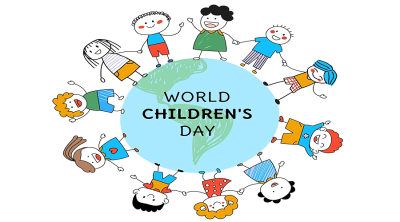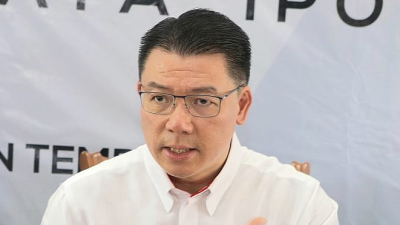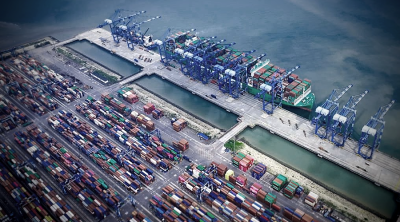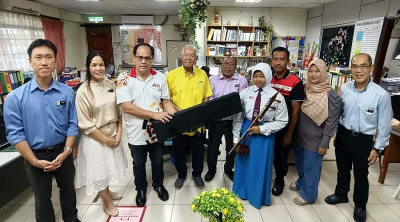
Bangladesh currently faces a perplexing situation regarding the repatriation of over one million Rohingya refugees to Myanmar.
Since 2017, several bilateral attempts, including visits and exchanges, have achieved little success.
The diplomatic efforts for repatriation are seemingly running in circles without the prospect of the Rohingya returning to their homeland any time soon.
So far, the road map to repatriation is tainted with coercion, violence, intimidation of the refugees at the camps in Cox’s Bazar, and continued disenfranchisement of the Rohingya in Myanmar.
To add to that, the recent renewed fighting between the armed rebel groups and the Myanmar junta may further push back the on-going repatriation plan due to lack of peace and stability inside Myanmar.
As it stands, the recent repatriation deal brokered by China offers very little in terms of restoration of the rights of the Rohingya people.
The deal in effect compromises citizenship for the so-called National Verification Card (NVC) for repatriated families.
Furthermore, the Rohingya are now being offered “model villages” for resettlement, despite their clear rejection of the repatriation scheme earlier.
The Myanmar officials made no commitment for the refugees’ repatriation to their original homes during the recent visit to Cox’s Bazar.
In all of this, Bangladesh officials seem indifferent to holding dialogues around reconciliation, security, and Rohingya rights as conditions for repatriation.
Instead, many speculate that Bangladesh is looking towards short-term fixes to resolve the crisis bilaterally, with Chinese aid and assistance.
But will short-term fixes be effective? This is very unlikely. Even if it does happen, such fixes would be unsustainable.
Repatriation through the bilateral agreements essentially means moving from one refugee camp to another, without restoring rights and ensuring freedom of movement of the Rohingya.
For the Rohingya, citizenship remains key and cannot be substituted by NVC. The Rohingya see NVC not as an instrument of inclusion, but rather as a tool that will perpetuate exclusion and continue cycles of discrimination upon their return to their homeland.
Any reasonable repatriation plan must entail the refugees’ access to land and their homes, security, and the restoration of their dignity in Myanmar.
The current efforts that eschew addressing their needs seem rather unproductive.
Repatriation at this time under the pilot project would mean a return to complete uncertainty without justice, rights, and accountability for systematic abuse by the armed forces.
Since repatriation can only be on a voluntary basis and without force or coercion, all indications reflect the Rohingya refugees’ unwillingness to return, which is fully justified, under the current volatile and unsafe political situations when Myanmar as a country itself is at risk of disintegration, according to many insider reports.
Last month’s unprecedented surprise offence, Operation 1027 (referring to the date the assault began) by a coalition of ethnicity-based armies and pro-democracy fighters in Myanmar’s north has left some analysts convinced that the country’s ruling junta is failing.
Much of the operation took place along the Chinese border and it is unclear what China’s role is in this new offensive; however, many observers speculate that weapons to conduct Operation 1027 were supplied from or through China.
For example, military analyst David Mathieson told ABC’s The World, that it is “inconceivable” that Operation 1027 could have been carried out without China’s blessing.
The renewed armed conflicts have internally displaced an estimated 200,000 people; another 5,000 Myanmar nationals have taken shelter in Mizoram after fleeing the violence erupting in the nation.
These developments have raised further concerns with regard to cross-border fresh influx, and triggered, according to Bangladesh Foreign Minister AK Abdul Momen, the deployment of additional Bangladeshi forces along the Myanmar border to prevent any fallout from the conflict.
Needless to say, repatriation would require peace and stability to address safety concerns for the returnees; otherwise, the Rohingya refugees will not agree to return.
So far, Bangladesh and Myanmar have both failed to engage the Rohingya meaningfully in repatriation decisions except for short visits and meetings with officials during their visits.
The task involves many complex and sensitive logistical issues and demands international collaboration to ensure smooth implementation on both ends.
During past repatriation efforts, the Cox’s Bazar office of the UN High Commissioner for Refugees (UNHCR) was not involved in the planning and logistics for any of the pilot projects for repatriation.
The UNHCR has always maintained that the situation in Myanmar is not conducive for safe and dignified repatriation.
A viable repatriation scheme can only be fashioned under the sponsorship and supervision of UN systems.
A collective international effort is required to reach a just resolution. However, it appears that there is no appetite among the international community for the Rohingya, more so amidst various conflicts worldwide, such as the Russia-Ukraine war and Israel’s genocide against Palestinians since the October 7 Hamas attack.
The Western countries are busy with their own kinfolk and struggles for global power and control.
Evidently, international support for the Rohingya people is diminishing by the day. So far, the International Court of Justice (ICJ) has been a great disappointment.
The ICJ has taken an inordinate amount of time to come up with a judgement regarding the genocide committed against the Rohingya people.
On November 16, several countries such as Denmark, France, the UK, Canada, Maldives, Germany, and the Netherlands issued a joint declaration of intervention in The Gambia’s case against Myanmar at the ICJ.
The declaration came years after the case was lodged. Though it does reaffirm an international commitment to accountability and resolution of the dispute peacefully, no one knows how tangibly effective the ICJ decision will be when delivered.
To devise a sustainable strategy, Bangladesh should work with the UN and continue its diplomatic efforts with other nations in developing safe conditions both in Myanmar and Cox’s Bazar to facilitate Rohingya repatriation.
The goal must be to remove the pervasive fear of persecution that plagues the Rohingya community both in and outside Myanmar.
As the Myanmar military junta loses ground, its response to the offensive threatens the practicality of a repatriation plan in the near future.
ADVERTISEMENT
ADVERTISEMENT








































